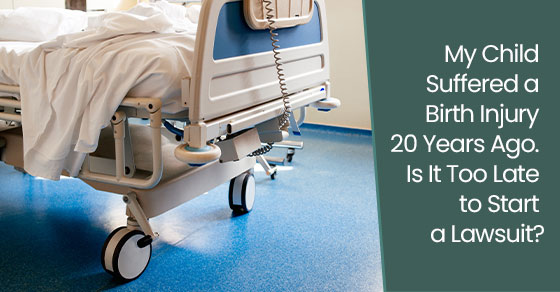See Our Lawyer's Reviews
Excellent
Based on 34 reviews
Hilt this Tamrate
23 May 2023
Dear Mr Hilik Y. And Jeremy Syrtash. I would like to express my deepest gratitude to you and Sommers Roth and Elmaleh Professional Corporation staff for all you have done with respect to my wife case. My wife was a victim of Medical Malpractice after giving birth to our daughter. She become legally disabled both physically and mentally. The entire family devastated emotionally as my wife struggle to cope with the new reality. The case of Medical Malpractice is quite often a complex case to prove. However, due to your strong commitment, knowledge and dedication combined with strong professionalism the case was successfully won after a long arduous fight. The victory would not have been possible without your dedication and thorough research in the implementation of the standards of the Sommers Roth and Elmaleh Professional Corporation. Justice prevailed at last which in turn allowed my vulnerable wife to feel more optimistic about her future and that of our family. The positive outcome of this case has changed our lives forever. It would not have been possible without the excellent representation of Sommers Roth and Elmaleh Professional Corporation and its legal counsel. My wife and I will be deeply grateful for the successful outcome of this case for many years to come. Solomon Regassa
Hector Cardenas
4 January 2023
I would like to take this opportunity to express my most sincere gratitude towards Sommers Roth & Elmaleh, from the day I met with Hilik and his team, they been not only highly knowledgeable but also extremely sensitive towards me and my family, providing us with the best legal service possible. It goes without saying, that I strongly recommend them to anyone looking for a charismatic, quality and result oriented legal team.
JERRY ZHOU
10 October 2022
We deeply appreciate Sommers Roth & Elmaleh for their professional skills and hard-working through the whole process of my son’s case. I still remember the first conversation we took with Mr. Hilik Y Elmaleh in his lawyer office sixteen years ago. From then on, your dedication, patience, understanding and continuous communications kept our encouragements and expectations for my son and our family. With the case settled down, my son can receive the full financial support, continuous therapies and finishing his university course. It is no doubt to say that Sommers Roth & Elmaleh not only changed our family’s life but also did contributions to the society, because my son can grow in a happy and health way in his teenage and receive university education from this autumn. Again we hereby strongly recommend the services provided by the lawyer office Sommers Roth & Elmaleh to those who needs the similar legal consultation and support. Even the door of your family was closed by some unfortunate events, there are more windows can be opened. The lawyers in Sommers Roth & Elmaleh are exactly the people who can open the windows and convert the sun-shine again to your family: Mr. Hilik Y Elmaleh,Mr.Jeremy Syrtash, Miss Fanny Peter ...etc. Finally, we express the deepest gratitude and appreciation again to Mr. Hilik Y Elmaleh and lawyer office Sommers Roth & Elmaleh. Wish a brighter future of Sommers Roth & Elmaleh !
Meggie Zhangkrk6hdjybfjt
6 October 2022
I am so glad that my son's CP medical case was completely successful. I appreciate lawyer Hilik Elmaleh, Jeremy Syrtash, Fanny Peter and their team's hard work. They are so knowledgeable, responsible and reliable. Thanks is not enough to express my gratitude. Mr. Hilik Elmaleh deserves "The Best Lawyer in Canada" award.
Tony Zhou
29 September 2022
I would like to extend my gratitude towards Mr. Hilik Elmaleh, Jermey Syntash, and Fanny Peter for their dedication, time, effort, and knowledge invested into my case. This is honestly the best team of lawyers in Canada. I would highly recommend them for any of your cases.
Dianne Keckes
18 July 2022
I would like to take this opportunity to thank our daughter's "Dream Team", Hilik Elmaleh, Jeremy Syrtash and Fanny Peter. The compassion, dedication, knowledge, experience and their recognition in the legal community have ensured us that we were on the right track working with the firm Sommers, Roth and Elmaleh. Words cannot express enough my gratitude! I will be forever grateful!
Ivica J Sokic
6 June 2022
Thank you does not begin to express the depth of gratitude I have for Sommers Roth & Elmaleh Professional Corporation. From the first day I sat in Hilik's office, not once did I feel apprehensive. My concerns and worries were put at ease due to the kindness and compassion of Hilik, Jeremy and Fanny and their relentless persistence to secure my daughter's future. This has been a long but successful endeavor during some difficult times and through it all, the Team has been resilient, informative and were always available. I highly recommend this dedicated and professional law firm and I will be forever in their debt.
Arden Melnechuk
1 December 2021
I was in a serious horse accident where the horse was injured and should never have been ridden. The owner of the horse was aware that the horse had chronic arthritis issues and the veterinarians at Guelph had told him the horse could decompensate at any time and could cause serious injury whether being led or ridden and could never be jumped again. The horse had been shown at the grand prix level and the owner had payed quite a bit of money for him. After consulting with several lawyers and having one that did represent me at the discoveries who later quit, Jeremy Syrtash took on the case and followed through with guelph university. That is how we found out that the vets had recommended the above. Without Jeremy's efforts and follow through the case would never have continued on. Because of these efforts the case was successful. Thank you so much Jeremy. You are a dedicated, thorough, excellent lawyer and it's been a pleasure to have you as my lawyer!!
Megha Sharma
16 April 2021
Mr. Elmaleh and his team are very professional and experts in their field. Recommend to everyone who has suffered medical negligence.
Nick & Whitney Maraschiello-Basnett
18 July 2020
We want to start by saying how much we highly recommend Sommers, Roth and Elmaleh for anyone who is dealing with a situation involving medical malpractice. Hilik and the entire firm have allowed us the opportunity to give our little girl the life she deserves. There is no taking back what happened, but they truly turned such a tragedy into a victory. They fought long and hard, and put forth so much time and effort into making the individuals accountable and responsible for the mistakes that were made. They always showed true compassion for our family, guided us with ease, and supported us through every step. This was such a life changing experience with the firm, and honestly we will always be forever grateful and thankful.




